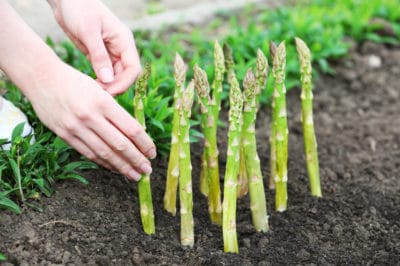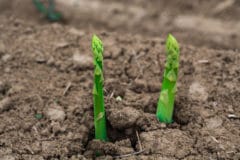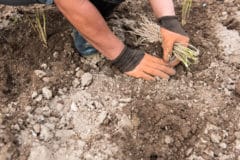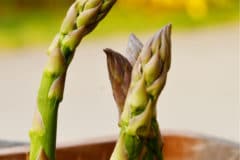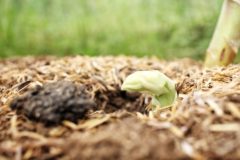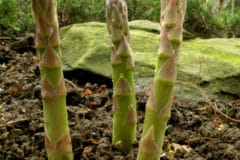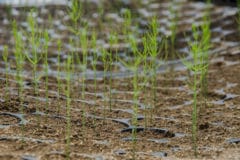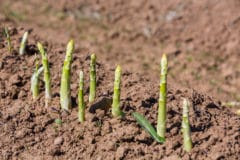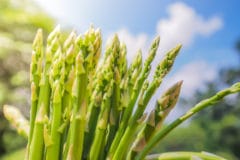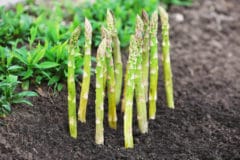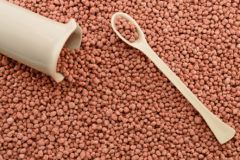Caring for Asparagus in Each Season
A perennial bed of asparagus needs different types of care in each season of the year.
Spring
Spring is the time for planting out asparagus crowns, transplanting seedlings, or sowing seeds directly in the ground. After plants are established, spring is the season of harvest, but not for the first two years with newly planted crowns, and not for three years with plants started from seed or seedlings.
In the first year, fertilize the bed in spring, but in the following years apply fertilizer after harvest in June.
In the first year, irrigate regularly in spring to establish plants. In the following years, water needs are minimal in spring because spears are being harvested, preventing water loss.
Summer
Summer is the time of greatest need for irrigation for established plants. In many areas, summer rainfall is not enough, and supplemental irrigation is needed. Begin irrigation after the last harvest in June and continue through August, wetting soil to a depth of 2 feet (60cm) and keeping it moist but not soggy.
Irrigation leads to weed growth, and summer is also a time for keeping weed competition down. Weeds are easiest to control when small. Use caution when weeding because the crown can be injured by garden tools.
Fall and Winter
Fall and winter weather bring a dying back of the above-ground, fern-like branches of the asparagus plant. When the leaves are fully dead, cut them back at ground level, but it is best to wait until early spring for cutting them, because the dead plants send nutrients back into the roots for several months after senescence.
Asparagus becomes dormant in winter and does not generally need irrigation in this season. Stopping irrigation in the fall allows the roots to go into dormancy.
Pests on Asparagus
Several pest and disease problems can affect asparagus plants.
- Fusarium wilt, rust, and asparagus beetle can be problems on asparagus. Prevent Fusarium wilt by planting in well-drained soil and not overwatering and by stopping the harvest of shoots in June so ferns can develop and strengthen the root system.
- Rust is problematic in areas with high humidity and warm temperatures, and rust resistant cultivars are recommended for these areas.
- Asparagus beetles overwinter in plant debris and emerge in spring, damaging shoots. Remove plant debris in fall and mulch the bed with a layer of compost. Pick adult beetles off of plants by hand or use neem oil for severe infestations.
By keeping your asparagus plants properly cared for and giving them what they need for healthy growth, you should receive a bountiful harvest of spears to tempt your taste buds.
